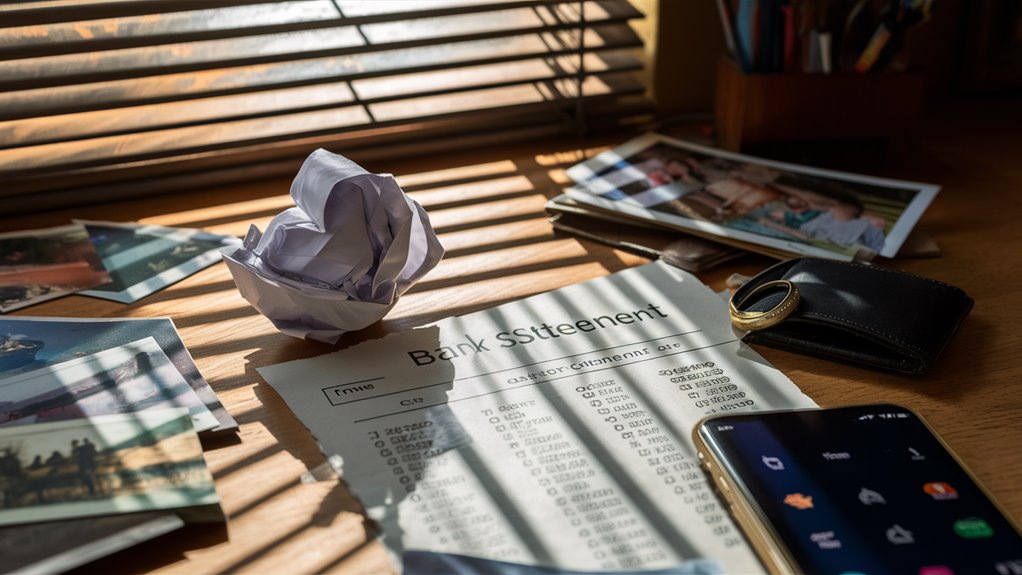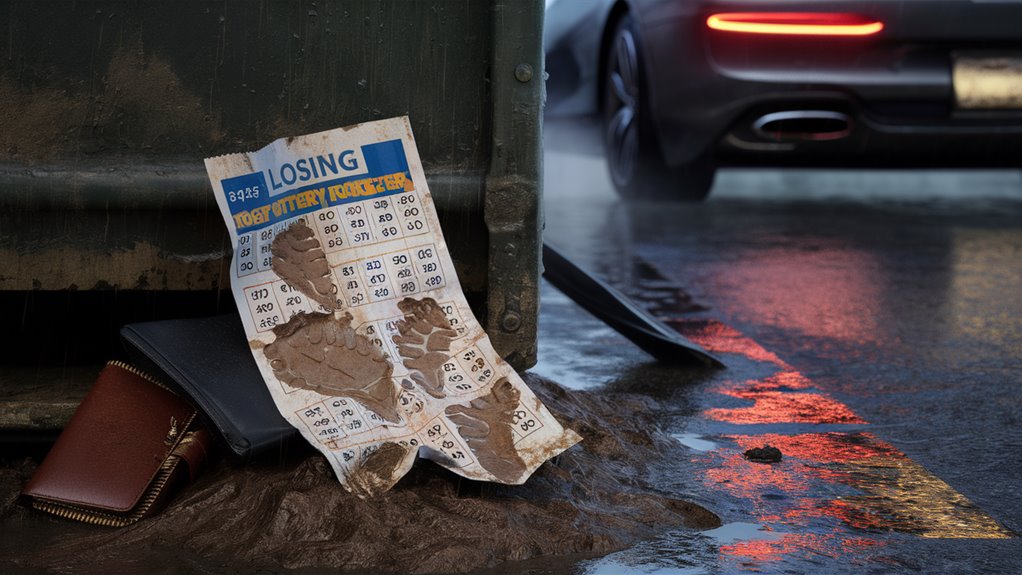Why People Hide Their Gambling Losses

Mind Set Behind Hiding
Big shame and fear of how people view them start a bad circle of hiding for those with gambling issues. The mind load of rising losses makes deep guilt, leading many to cut off from help when they need it the most. Bad self-talk and low self-worth stick around, making people pull away even more.
Social and Relationship Effects
The big need to keep relationships pushes many gamblers to hide their losses from family and pals. Worries about how people see them and their place in society are big, as they fear being seen as careless or out of control. This need to protect can make things worse, causing less trust and more space between them and others. 이 자료 참고하기
Money Woes and Hiding
Growing debt and bad credit scores put a lot of pressure to keep gambling losses a secret. Many turn to hidden loans, lie about money spent, or shift house money to hide it. The money mess gets harder and harder to hide or get out of, keeping up the lies and tricks.
Cultural Shame and Getting Help
Misunderstandings by society about gambling problems make big blocks to getting help. The cultural shame around gambling issues often makes people feel worse instead of seeking expert help. This wide lack of knowing about gambling issues as real health troubles makes it harder to get better.
Breaking the Chain
Getting why people hide gambling losses is key for making plans that work. Expert help and addiction advice are main ways to get better, and teaching people helps to take down shame and start talking about gambling issues.
Understanding the Social Shame of Problem Gambling
The Weight of Gambling Addiction
Social shame around gambling problems makes a strong wall that stops many from seeking the help they need. Problem gamblers often hide their money losses from close ones due to deep fears of being seen as bad or not in control. This hiding usually starts a bad spiral of being alone, making expert help and getting better much harder.
Tough Issues in Seeing Addiction
While society gets better at seeing substance issues, gambling problems face their own hard views. People often see gambling losses as personal fails, not as signs of a real behavior issue. This wrong idea makes the shame felt by those with gambling problems worse, setting up more blocks to getting better.
Work Impact and Getting Help
The weight of gambling shame reaches into work life, where people worry about their job image. Many fear that talking about their gambling problems could make others doubt their choice-making skills at work. This job shame often makes people wait to seek help, letting the addiction grow worse before getting help.
Breaking the Shame Chain
Help Systems and Getting Better
- Expert counseling for gambling issues
- Private groups for sharing stories
- Help with managing money
- Family therapy options for fixing trust
- Work help programs for those affected
Keeping Personal Connections Safe from Gambling Issues
Knowing the Effects of Hidden Gambling Losses
Problem gambling hurts close relationships and family ties a lot. When gamblers hide their losses to protect loved ones from worry and money stress, this need to protect really harms the relationships they want to keep. The work to keep secrets wears down trust and makes emotional gaps between partners and family.
Breaking Down Barriers in Relationships
Hiding gambling actions makes bad barriers that stop real connections and support systems from working. Many dealing with gambling issues think they can hide their losses until they win them back. But, this pattern of lies usually makes the problem worse, leading to more isolation and harming relationships more.
What Families Face
The impact on kids needs special attention when looking at gambling-related hiding. Hidden money troubles from gambling can start bad behavior patterns that make keeping secrets and avoiding issues seem normal. While telling about gambling losses may be hard for relationships at first, keeping them hidden almost always leads to worse problems in the long run.
Building Trust With Truth
Keeping relationships safe depends on being honest and open, even when sharing hard truths about gambling actions. Though first talks may cause hurt and fights, they start needed paths to healing and getting better. The base of healthy relationships is built on true talks, not on hiding the truth.
Key Steps for Keeping Relationships Safe
- Quickly telling about gambling-related money issues
- Open talks about triggers and hard times
- Getting expert help through counseling or therapy
- Being clear about money with those affected
- Planning recovery with loved ones involved
Getting the Link Between Gambling-Related Shame and Self-Worth

The Shame Cycle in Problem Gambling
Problem gamblers often feel deep shame and their self-worth goes down, creating a bad circle of hiding and self-hate. This big shame usually comes from seeing personal fails, especially when they break promises about keeping gambling under control. Not being able to handle money right and keep betting in check often starts big embarrassment.
How It Hits Self-Esteem and Mind Health
Low self-worth shows in several key signs:
- Always doubting personal choices
- Bad self-talk and self-hitting
- Pulling away from help groups
- Feeling sad and worried
- Fear of being found out and judged
Money Troubles and Gambling Debt
Big Money Impact of Problem Gambling
Gambling issues lead to big money problems through rising debt, used up savings, and very bad credit scores. Problem gamblers often use up credit cards, take high-cost loans, and use up retirement money in desperate tries to fix losses. This bad pattern makes a flow of money troubles that can last for years.
Hidden Costs and Rising Penalties
Problem gambling usually leads to more money penalties like late fees, overdraft costs, and tough collection actions. Those with gambling issues turn to tough choices like high-cost short-term loans, taking money without permission, or selling important stuff while hiding their gambling. Credit scores drop fast as unpaid debts pile up, making blocks to getting houses, jobs, and future money help.
Getting How People Deny Gambling Issues
The Hard Ways of Denial in Problem Gambling
Denial in problem gambling shows through many mind blocks, stopping people from seeing their issue despite clear signs and growing troubles. This mind defense works through clear patterns like making losses seem small, making reasons for gambling, and saying no to outside worries.
Common Ways of Denial
Making Money Impact Small
Gambling losses often get made to seem less through mind tricks. Problem gamblers often blame their money problems on short bad luck or unlucky situations instead of seeing their addicting actions.
Getting the Cultural Shame About Gambling Issues
The Big Social Impact of Gambling Shame
Society’s views on gambling problems make big blocks to getting better and support. While some places ban gambling altogether or see it as just fun, problem gambling almost always faces harsh views no matter where. Exploring the World of Virtual Gambling in 2025
Seeing Other Addiction Stigmas
Gambling trouble carries its own shame compared to other addicting actions. Even with medical growth in seeing substance issues, problem gambling still gets a lot of moral blame. Cultural views often see gambling losses as personal moral fails rather than signs of a fixable behavior issue.
Hope for Getting Better in the Future
Expert Help Ways
Getting free from gambling troubles is a real goal through proven treatment ways and strong support systems. Thought and behavior help is a key help, making people see triggers and get good ways to deal. Expert gambling advisors give special skills in both getting better from addiction and fixing money issues, making full help plans for each person.
Proven Tools and Help Groups
Programs to stay away mixed with family support groups make strong bases for long success in getting better. Modern treatment ways now use new digital tools, like:
- Apps to track getting better
- Tools to watch progress
- Online help groups
- Virtual talking help
